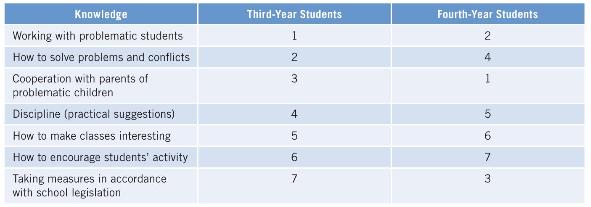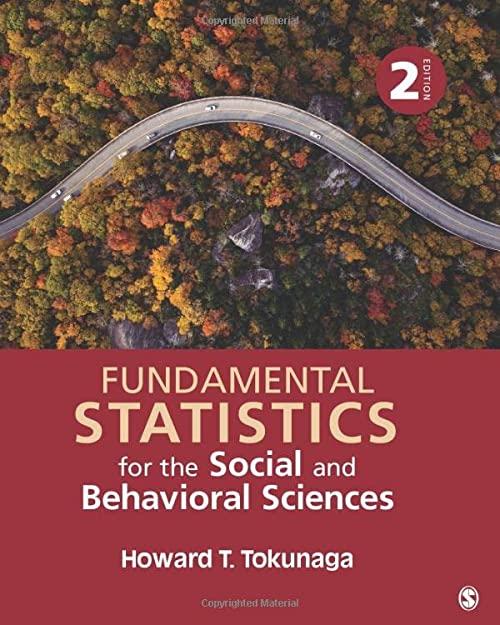Do students' needs change as they progress through their education? One study asked third-year and fourth-year college
Question:
Do students' needs change as they progress through their education? One study asked third-year and fourth-year college students preparing to be teachers what knowledges they would like to gain in order to effectively work with misbehaving students (Psunder, 2009). The seven knowledges below were rank ordered based on how often they were mentioned \((1=\) most often mentioned to \(7=\) least often mentioned). As the fourth-year students had gained more actual teaching experience than the third-year students, it was believed their desired knowledges would be different from the third-year students.
a. State the null and alternative hypotheses \(\left(\mathrm{H}_{0}\right.\) and \(\left.\mathrm{H}_{1}\right)\).
b. Make a decision about the null hypothesis.
(1) Calculate the degrees of freedom ( \(d f\) ).
(2) Set alpha \((\alpha)\), identify the critical values, and state a decision rule.
(3) Calculate a statistic: Spearman rank-order correlation \(\left(r_{s}\right)\).
(4) Make a decision whether to reject the null hypothesis.
(5) Determine the level of significance.
(6) Calculate a measure of effect size \(\left(r_{s}^{2}\right)\).
c. Draw a conclusion from the analysis.
d. Relate the result of the analysis to the research hypothesis.
Step by Step Answer:

Fundamental Statistics For The Social And Behavioral Sciences
ISBN: 9781506377476
2nd Edition
Authors: Howard T Tokunaga




